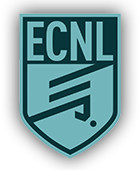Creating an Elite Development Environment and Being an Athlete Within It
The word “coach” derives from the Hungarian word kocsi … meaning “carriage.” The original word referenced the fact that a coach can help “carry” a student to new performance levels or through tests of various types. In other words, “to coach” was to take someone from where they are to where they want to be. A definition that is perhaps more practical when applied to sports, is this: “to coach is to help athletes learn and acquire new skills (and understanding) faster than they would on their own.”
So how do coaches help the most ambitious athletes reach their goals and maximize their potential as effectively and as efficiently as possible? How do coaches help athletes develop skills faster than they would on their own?
The word “coach” derives from the Hungarian word kocsi … meaning “carriage.” The original word referenced the fact that a coach could help “carry” a student to new performance levels or through tests of various types. In other words, “to coach” was to take someone from where they were to where they wanted to be. A definition that is perhaps more practical when applied to sports, is this: “to coach is to help athletes learn and acquire new skills (and understanding) faster than they would on their own.”
So how do coaches help the most ambitious athletes reach their goals and maximize their potential as effectively and as efficiently as possible? How do coaches help athletes develop skills faster than they would on their own?
- They provide a high number of trainings, at least 3-4 trainings for every 1 game, that create the potential for large numbers of repetitions in a learning and developmental environment. See what US Soccer staff have to say about training-to-game ratios and the impact of repetition here.
- They focus a huge amount of time training fundamentals – teaching basic technical skills and athletic movement in great detail – at every age. To see Manchester United doing some of the same basic warm-up and training exercises you do every day (focusing on quick feet, basic technique, and basic tactical ideas), and hear from these players about the mentality it takes to develop (and the importance of concentration and repetition), watch here.
- They do not waste time with long speeches and lectures, but instead give short, specific comments that resonate with players quickly. (The next time you watch a training session, take a stop-watch and keep track of how much time players are training vs. how much time they are standing around while the coaches talk. Unfortunately, in most places you will find players actually only training 30-45 minutes of a 90 minute session.)
- They provide blunt and honest feedback – even if it is difficult for the athlete to hear. In his book The Little Book of Talent, author Daniel Coyle describes this type of feedback as being “honest, sometimes unnervingly so.” As he describes it, the best coaches “will tell you the truth about your performance in clear language. This stings at first. But you’ll come to see that it’s not personal – it’s the information you can use to get better.”
This is the environment that we strive to create every day at FC Wisconsin Eclipse: to create a session that pushes athletes beyond their comfort zones (in work rate, in courage, in skill expectations, and in mental toughness). This is the only way to develop. As an athlete, your job in this environment is very easily summarized (but very difficult to do consistently) in 4 tasks:
- WORK as hard as possible to do every activity to the best of your ability. REACH outside your comfort zone. COMPETE against yourself and your teammate.
- LISTEN intently to the information you are given. ABSORB it, EMBRACE it, ask questions to better understand it.
- TRUST that the coaches will help you get where you want to go faster than you can by yourself and IMPLEMENT the information they give you. CHANGE what they ask you to change, and EMPHASIZE what they ask you to emphasize.
- REPEAT. There is no learning without change ... to actually execute on the first two tasks (work and listen), you must act on the third (trust). When you have done so, and therefore reached a new level, strive for the next one. EMBRACE THE CONSTANT ESCALATION of expectations.
If you put yourself in this type of environment, and then do the 3 above tasks as an athlete, you will maximize every bit of your potential, and find yourself succeeding far beyond your expectations.



